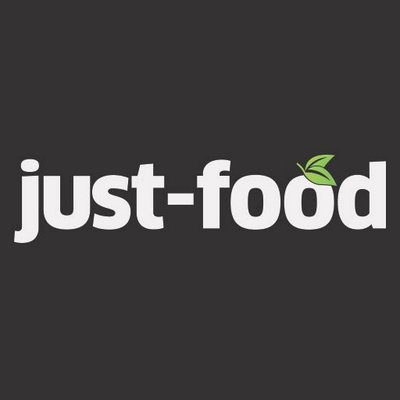
Millennials and Hispanics are the Fastest-Growing Demographics in the U.S. Organic Market, Other Key Takeaways
In its recently released market data for the 52 weeks ending November 24, 2018, Nielsen has provided some fascinating insight about key product segments, shopper behavior patterns and influential consumer groups for the U.S. organic market.
NOTABLE HIGHLIGHTS
Millennials
– Increased spending on organic by 13.8%
– Made 9.8% more trips to purchase organic products, compared to a year ago
Hispanics
– Increased spending on organic by 13.4%
– Made 9.6% more trips to purchase organic products, compared to a year ago
Top Selling Categories Among Organic Products
(Dollar Volume / Sales Growth)
| Category | Sales | Change |
|---|---|---|
| Cow’s milk | $1.361B | -2.3% |
| Pre-packaged salads | $1.124B | 5.7% |
| Chicken eggs | $814M | 6.9% |
| Health & nutrition bars | $558M | 3.7% |
| Fresh chicken | $499M | 11.1% |
| Sandwich bread | $466M | 18.8% |
| Kombucha | $412M | 41.9% |
| Apples | $393M | 6.8% |
| Baby food | $341M | 8.8% |
| Carrots | $338M | 2.8% |
| Category | Total Sales | Sales Growth | Unit Growth |
|---|---|---|---|
| Organic Health & Beauty Care Products | $853M | 20% | 19% |
| Organic Baby Care | $566M | 10% | 10% |
| Organic Alcohol | $141M | 33% | 28% |
| Overall U.S. Organic Market | $21B | 9% | 8% |
KEY TAKEAWAYS
1) If organic brands take anything away from this Nielsen report it should be this: the shopping preferences of Millennials and the U.S. Hispanic population must be taken into account when developing products and devising marketing strategies.
While it may be well known that Millennials are a critical segment, I do not believe the importance of the Hispanic demographic is widely appreciated or understood. Rarely, if ever, do I hear organic brands talk about how they are going to focus on this market segment or create products geared toward this specific group.
With the latest U.S. Census Bureau data pegging the Hispanic population at 58 million and with organic brands facing an increasingly competitive environment, targeting this demographic — which has demonstrated a serious appetite for organic — could be a smart move.
2) The demand for organic is exploding in the non-food market, particularly with organic alcohol and health & beauty care products.
People are coming to realize that organic is not just something to be prioritized only at the dinner table, but that organic is a necessity in all areas of life. Needless to say, this bodes very well for the industry as a whole because it indicates that a significant shift in the consumer mindset is taking place.
3) The difference between what Nielsen reports as the total market size of the U.S. organic market ($21 billion) and what the Organic Trade Association reported last May ($49 billion) is nothing short of jarring.
Although we are not comparing apples to apples — Nielsen’s data is for 2018 while the OTA’s is for 2017, and both organizations are using different sources and methods to compile their numbers — the total market sizes of organic are not even remotely close. We are talking about a $28 billion dollar difference, and the number is probably more than $30 billion if we compare 2017 data from each organization.
Nielsen said that it is using UPC-coded (barcodes scanned at retail points of sale) and random-weight/Non-UPC data. In an email to Organic Insider, the Organic Trade Association said that “it includes mainstream grocery, natural channel and alternative channel sales (e-commerce, farmers markets, CSAs), and attempts to account for items within traditional retail that have never been accurately understood by syndicated data (items without a UPC).”
One very interesting and important data point that Nielsen gives is unit growth. With competition pushing prices down in organic, particularly for items such as milk, this 8% unit growth for the overall market is very helpful.
 |
Have a great day! 
Max Goldberg, Founder |
Quick Hits
* This morning, Politico reported that the government shutdown will delay the USDA’s issuance of regulations aimed at blocking fraudulent organic imports from crossing U.S. borders. Additionally, the shutdown also means that cases of organic fraud are not currently being investigated.
* Congrats to David Batstone, founder of REBBL and global anti-slavery group Not for Sale, for being recognized by software company SAP as one of the world’s 50 top “Forward Thinkers” in the future of supply chains. Very deserving!
* From January 23-25 in NYC, The Clean Slate Café will host the first-ever pop-up dining experience serving only Whole30-approved and compliant options. Organic brands participating in this pop-up include Applegate, Kettle & Fire, Primal Kitchen and Vital Farms.
* Billionaire Steven Cohen and his Point72 Asset Management have increased their stake in SunOpta, a publicly-traded company that sources and manufactures organic and Non-GMO ingredients/products throughout the world.
* C.A. Fortune, a CPG sales and marketing firm, has announced the acquisition of JB Chicago, an integrated marketing, branding and creative agency.
* In the UK, Bees & Co has become the first carbon neutral honey brand, certified by the Carbon Footprint Standard.
* In personnel moves…….Erik Oberholtzer, chef and co-founder of Tender Greens, has been appointed to the Rodale Institute Board of Directors.
* The Organic Center has announced that Dr. Amber Sciligo has joined its staff as Manager of Science Programs.
New Organic Products
New Flavors of Thin Stackers by Lundberg Family Farms
Lundberg Family Farms has expanded its Organic Thin Stackers line to include five new flavors: cracked black pepper, crushed red pepper, basil & thyme, black rice, and sorghum. They are all Non-GMO Project verified and gluten-free certified.
Vegan Salad Dressings by La Tourangelle
La Tourangelle has unveiled four new organic salad dressings: classic balsamic, creamy ranch, sesame tamari and citrus chipotle. Handcrafted using traditional mixing techniques, the dressings are all vegan, canola-free, gluten-free and low sodium.
Tranquility Supertea Beverage by Down to Earth
Down to Earth’s Tranquility organic supertea beverage is made with ashwagandha, chamomile, lavender and sweet monk fruit. It contains no added sugar and comes in glass bottles. A fascinating new entrant in the tea market.
Want your product profiled here? Learn more
Weekly News Summaries

BREAKING: Center for Food Safety Files a Legal Action to Prevent Hydroponics in Organic
The USDA has been allowing hydroponics in organic -- a complete violation of the Organic Foods Production Act of 1990. This morning, Center for Food Safety filed a legal petition with the USDA to stop this from happening. We will be covering this development in much more detail in next week's Organic Insider.

Whole Foods Halts the Growth of its Less Expensive '365' Stores
By Hayley Peterson
Whole Foods will no longer be opening additional 365 stores, and an internal email cited the diminishing price gap between Whole Foods and 365 as the reason for the change.

Report: Glyphosate Approval in the EU was Based on Plagiarized Monsanto Text
By Arthur Neslen
Shocking but not shocking. The Guardian is claiming that EU regulators literally copy-and-pasted sections from Monsanto's own studies when creating an "independent" safety report on the controversial weedkiller glyphosate.

Misrepresentation of Organic at Restaurants is a Real Issue
While organic certification for restaurants is optional, state and federal consumer protection law requires honesty and transparency about what is and what isn’t organic on their menus.

Kroger CEO/Chairman Gives 5 Predictions on the Future of Retail
Rodney McMullen, Chairman and CEO of Kroger, gave his outlook on the future of retail at the NRF 2019: Retail's Big Show in New York City.

Is Amazon Launching a Fresh Meal Delivery Division?
By Jeff Wells
A recent job posting by Amazon, which was quickly taken down, indicates that the company is looking to get into the fresh meal delivery business.

First Plant-Based Trade Show to Debut in NYC This Summer
Hosted by the Plant Based Foods Association, the Plant Based World Conference & Expo will take place June 7-8 in New York City.


Canadian Juice Company Greenhouse Raises $9M
By Kirk Falconer
Greenhouse, a Toronto-based pressed organic juice company, has raised $9M from Canopy Rivers, the venture capital arm of Canadian cannabis producer Canopy Growth Corp.

Female Ranchers Are Reclaiming the American West
By Amy Chozick
A great photo essay on how U.S. ranches are increasingly being led by women, who are implementing animal agriculture practices that are more humane and regenerative.

Laird Superfood Raises $32M, Eyes Acquisitions
By Dean Best
Laird Superfood, a producer of organic and Non-GMO, keto-friendly foods, has raised $32M and plans to use this money for product development and acquisitions.

Consumers are Getting Fed Up with Plastic Packaging in Organics
By Tom Karst
Even though more organic produce consumers are pushing back against the use of plastic in packaging, the question is: will it have an impact?
The material in this newsletter is copyrighted and may be reprinted by permission only. All requests must be in writing. Please use our contact form to request republication rights.
Newsletter Archive
Quick Hits
* This morning, Politico reported that the government shutdown will delay the USDA’s issuance of regulations aimed at blocking fraudulent organic imports from crossing U.S. borders. Additionally, the shutdown also means that cases of organic fraud are not currently being investigated.
* Congrats to David Batstone, founder of REBBL and global anti-slavery group Not for Sale, for being recognized by software company SAP as one of the world’s 50 top “Forward Thinkers” in the future of supply chains. Very deserving!
* From January 23-25 in NYC, The Clean Slate Café will host the first-ever pop-up dining experience serving only Whole30-approved and compliant options. Organic brands participating in this pop-up include Applegate, Kettle & Fire, Primal Kitchen and Vital Farms.
* Billionaire Steven Cohen and his Point72 Asset Management have increased their stake in SunOpta, a publicly-traded company that sources and manufactures organic and Non-GMO ingredients/products throughout the world.
* C.A. Fortune, a CPG sales and marketing firm, has announced the acquisition of JB Chicago, an integrated marketing, branding and creative agency.
* In the UK, Bees & Co has become the first carbon neutral honey brand, certified by the Carbon Footprint Standard.
* In personnel moves…….Erik Oberholtzer, chef and co-founder of Tender Greens, has been appointed to the Rodale Institute Board of Directors.
* The Organic Center has announced that Dr. Amber Sciligo has joined its staff as Manager of Science Programs.



